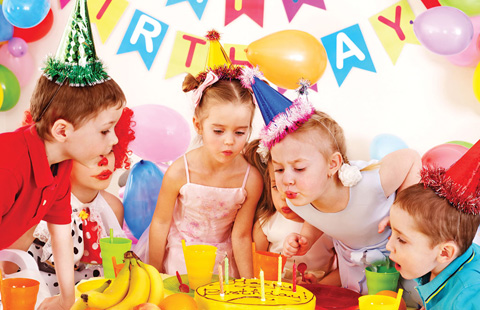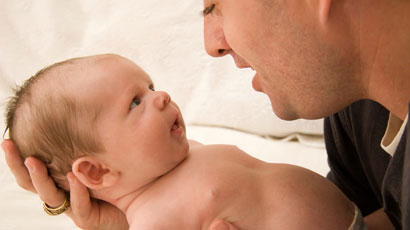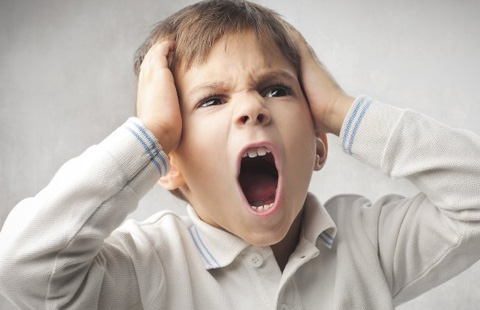By Dr. Pervin DadachanjiStrategies to control anger are very useful to maintain quality of your life. There are different ways to express anger for preventing its ill effects. Help your child walk away from a bad situation with following strategies. Read on to know more. In this articleAcceptable Ways To Express AngerTHE TURTLE TRICKTALK TO YOURSELFUSE YOUR POCKETSSAY IT NICELYWRITE DOWN YOUR FEELINGSSet a Good exampleGood, consistent parentingReward Your Child for Friendly BehaviorEstablish A RuleSay it with wordsSupervision by parentsInactivity may also lead to aggressive behaviorTimeOutNon exposure to violence in Television and movies1. Acceptable Ways To Express Anger: In the long run, you want your child to be able to verbalize his anger in a calm but assertive way. Encourage your child to come to you when hes angry and to talk about it until he feels better. Teach your child to stop and count to 10 before doing anything about his anger. Help him learn to walk away from a bad situation. a. THE TURTLE TRICK: When your child is upset, have her do the turtle trick. (It is best to practice this at a time when she is not angry.) Explain to her that rather than hitting or calling someone names, she may pretend that she is a turtle. When a turtle gets scared or mad, he goes inside his shell where it is safe. The shell gives the turtle a chance to calm down because it is protecting him from others. If she goes into her "shell" it will protect her because she wont get into trouble for hitting a playmate. This is generally effective with young elementary children who enjoy "pretend" playing although it may take awhile for them to become proficient. b. TALK TO YOURSELF: This can be a second step to the turtle trick or it can be used alone. When your child is mad, have him talk to himself. Have him say, out loud, "Take a deep breath and relax." Then have him say it quietly to himself. Practice other sentences such as, "I can control my temper," or "Ill think of a way to solve this problem." Link them all together and have your child repeat them over in his head. Sometimes, just telling yourself you are calm will help you become that way. c. USE YOUR POCKETS: Explain to your child that it is okay to be upset, but it is not okay to hit or break things. When she is angry, have her put her hands in her pockets or hold them behind her back. This will help control the urge to hit. While her hands are in her pockets, have her tell the person how she is feeling and why. This also encourages effective communication skills. d. SAY IT NICELY: When you are angry, it is difficult to be polite. Practice with your child ways to say you are mad that do not hurt others. Some examples include, "That bothers me," "Stop bugging me," "I dont like that," "That makes me angry," and "Leave me alone." Notice that all of these statements avoid starting with "you." When you say, "You are bugging me," it only makes the person defensive and they will annoy you more. e. WRITE DOWN YOUR FEELINGS: Buy your older child a diary where he can write down his feelings. Or, have him write a letter to the person that made him upset. Pretend that he is going to give this note to that person. Tell that person exactly how she made him feel and why he is feeling that way. If your child cant write, have him dictate a letter to you. Keep the note for awhile, and when your child is no longer angry, have him tear up the letter and throw it away. 2. Set a Good example: Show self-control and verbal problem solving yourself. Never hit your child for hitting someone else. Hitting your child only teaches that it is fine to hit if you are bigger. If your child tends to be aggressive, it is critical to eliminate all physical punishment (such as spanking). You can use many other consequences (such as a time-out) to teach your child right from wrong. Sometimes you will need to make a stronger statement, such as taking away a party or a play date with a friend. Your disappointment in his behavior can be a powerful deterrent. A statement like "You must never, you hear me, absolutely never hit a child again." will be a clear and appropriate message to an aggressive child. Help your child avoid playmates that often tease, or other situations in which your child frequently gets into fights. In addition, when your child becomes tired or hungry, leave the play setting until these needs are met. 3. Good, consistent parenting: A combination of lax discipline and hostile attitudes by parents can produce very aggressive and poorly controlled children. If you indulge or neglect your child, and then punish excessively, your parenting will cause your child to be aggressive, rebellious, and irresponsible. 4. Reward Your Child for Friendly Behavior: Praise him for being nice to people, for playing with age mates in a friendly way, for sharing things and for helping other children who have gotten into a hitting pattern. If your child has a problem with hitting her brother, praise her for giving him a hug or pat. Every time he plays with his friends or siblings without fighting, praise him for playing co-operatively. Some children respond to a system of receiving a treat or star chart for each day they go without any "hitting"-type behavior. 5. Establish A Rule: "Do not hit, because it hurts. We do not hurt people." 6. Say it with words: Teach him how to negotiate (ask for) what he wants, rather than taking it. This will be a lesson for life. Teach him how to take turns or how to trade one of his toys to gain use of another childs toy. 7. Supervision by parents: Young children are calmed by the presence of an adult. Show interest in their activities, and be ready to become involved in time to head off trouble. If you notice two children getting irritated with each other, suggest a new game, or give them separate activities for a little while. 8. Inactivity may also lead to aggressive behavior: Your child needs plenty of opportunities for strenuous outdoor play and exercise. This will help him get rid of tension and extra energy. 9. Time-Out: Make it perfectly clear to your child that aggressive acts are not acceptable and will not be tolerated. Explain why you disapprove. Set the rules, and consistently enforce them. Use the "time-out" penalty. This means that for a specific amount of time the child must be isolated from social contact. After an aggressive act, explain what she did wrong, and walk with her to the "time-out" area. Explain that because of what she did (slapping your leg, pinching her sister, etc.) she will have two minutes of time-out. Set a timer for two minutes and let her know the time-out is over when it rings. Being in a time-out helps a child learn to cool down (rather than blow up) when he is angry. Giving your child a time-out is one way of teaching him to walk away from anger. Younger children with limited expressive language (less than three or four years old) need time to develop these skills. When they are in a time-out, dont be surprised if they pout, mutter to themselves, yell in their room or pound on their door. If these physical outlets for anger are blocked, a more aggressive outburst may occur. As long as the behavior is not destructive, ignore it. After putting your child in a time-out, pick up the child who has been injured and give him extra sympathy and attention. It is especially helpful if you can rescue the victim before he is hurt. In your childs mind, the attention he wanted is now being given to the other person, and that should give him some "food for thought." If fighting is a pattern with certain playmates or siblings, be sure the "victim" is not "setting up" the "perpetrator" to gain attention. If a time-out does not seem to be effective, take away your childs favorite toy or television time for the remainder of the day. 10. Non exposure to violence in Television and movies: Studies have shown that the more violent the programs preferred by children, the more aggressive their behaviour. Aggressiveness is a normal reaction in children. They let out their angry emotions when they feel they need to protect their safety or happiness. As parents it is our responsibility to help them express their anger and aggressiveness in a constructive manner Dr Pervin Dadachanji M.D. Child and Family Therapist Back to Part 1 - Helping Your Child Control Anger
By Dr. Pervin Dadachanji
Strategies to control anger are very useful to maintain quality of your life. There are different ways to express anger for preventing its ill effects. Help your child walk away from a bad situation with following strategies. Read on to know more.1. Acceptable Ways To Express Anger:
In the long run, you want your child to be able to verbalize his anger in a calm but assertive way. Encourage your child to come to you when he's angry and to talk about it until he feels better. Teach your child to stop and count to 10 before doing anything about his anger. Help him learn to walk away from a bad situation.
a. THE TURTLE TRICK:
When your child is upset, have her do the turtle trick. (It is best to practice this at a time when she is not angry.) Explain to her that rather than hitting or calling someone names, she may pretend that she is a turtle. When a turtle gets scared or mad, he goes inside his shell where it is safe. The shell gives the turtle a chance to calm down because it is protecting him from others. If she goes into her "shell" it will protect her because she won't get into trouble for hitting a playmate. This is generally effective with young elementary children who enjoy "pretend" playing although it may take awhile for them to become proficient.
b. TALK TO YOURSELF:
This can be a second step to the turtle trick or it can be used alone. When your child is mad, have him talk to himself. Have him say, out loud, "Take a deep breath and relax." Then have him say it quietly to himself. Practice other sentences such as, "I can control my temper," or "I'll think of a way to solve this problem." Link them all together and have your child repeat them over in his head. Sometimes, just telling yourself you are calm will help you become that way.
c. USE YOUR POCKETS:
Explain to your child that it is okay to be upset, but it is not okay to hit or break things. When she is angry, have her put her hands in her pockets or hold them behind her back. This will help control the urge to hit. While her hands are in her pockets, have her tell the person how she is feeling and why. This also encourages effective communication skills.
d. SAY IT NICELY:
When you are angry, it is difficult to be polite. Practice with your child ways to say you are mad that do not hurt others. Some examples include, "That bothers me," "Stop bugging me," "I don't like that," "That makes me angry," and "Leave me alone." Notice that all of these statements avoid starting with "you." When you say, "You are bugging me," it only makes the person defensive and they will annoy you more.
e. WRITE DOWN YOUR FEELINGS:
Buy your older child a diary where he can write down his feelings. Or, have him write a letter to the person that made him upset. Pretend that he is going to give this note to that person. Tell that person exactly how she made him feel and why he is feeling that way. If your child can't write, have him dictate a letter to you. Keep the note for awhile, and when your child is no longer angry, have him tear up the letter and throw it away.
2. Set a Good example:
Show self-control and verbal problem solving yourself. Never hit your child for hitting someone else. Hitting your child only teaches that it is fine to hit if you are bigger. If your child tends to be aggressive, it is critical to eliminate all physical punishment (such as spanking). You can use many other consequences (such as a time-out) to teach your child right from wrong. Sometimes you will need to make a stronger statement, such as taking away a party or a play date with a friend. Your disappointment in his behavior can be a powerful deterrent. A statement like "You must never, you hear me, absolutely never hit a child again." will be a clear and appropriate message to an aggressive child.
Help your child avoid playmates that often tease, or other situations in which your child frequently gets into fights. In addition, when your child becomes tired or hungry, leave the play setting until these needs are met.
3. Good, consistent parenting:
A combination of lax discipline and hostile attitudes by parents can produce very aggressive and poorly controlled children. If you indulge or neglect your child, and then punish excessively, your parenting will cause your child to be aggressive, rebellious, and irresponsible.
4. Reward Your Child for Friendly Behavior:
Praise him for being nice to people, for playing with age mates in a friendly way, for sharing things and for helping other children who have gotten into a hitting pattern. If your child has a problem with hitting her brother, praise her for giving him a hug or pat. Every time he plays with his friends or siblings without fighting, praise him for playing co-operatively. Some children respond to a system of receiving a treat or star chart for each day they go without any "hitting"-type behavior.
5. Establish A Rule:
"Do not hit, because it hurts. We do not hurt people."
6. Say it with words:
Teach him how to negotiate (ask for) what he wants, rather than taking it. This will be a lesson for life. Teach him how to take turns or how to trade one of his toys to gain use of another child's toy.
7. Supervision by parents:
Young children are calmed by the presence of an adult. Show interest in their activities, and be ready to become involved in time to head off trouble. If you notice two children getting irritated with each other, suggest a new game, or give them separate activities for a little while.
8. Inactivity may also lead to aggressive behavior:
Your child needs plenty of opportunities for strenuous outdoor play and exercise. This will help him get rid of tension and extra energy.
9. Time-Out:
Make it perfectly clear to your child that aggressive acts are not acceptable and will not be tolerated. Explain why you disapprove. Set the rules, and consistently enforce them. Use the "time-out" penalty. This means that for a specific amount of time the child must be isolated from social contact. After an aggressive act, explain what she did wrong, and walk with her to the "time-out" area. Explain that because of what she did (slapping your leg, pinching her sister, etc.) she will have two minutes of time-out. Set a timer for two minutes and let her know the time-out is over when it rings.
Being in a time-out helps a child learn to cool down (rather than blow up) when he is angry. Giving your child a time-out is one way of teaching him to walk away from anger. Younger children with limited expressive language (less than three or four years old) need time to develop these skills. When they are in a time-out, don't be surprised if they pout, mutter to themselves, yell in their room or pound on their door. If these physical outlets for anger are blocked, a more aggressive outburst may occur. As long as the behavior is not destructive, ignore it.
After putting your child in a time-out, pick up the child who has been injured and give him extra sympathy and attention. It is especially helpful if you can rescue the victim before he is hurt. In your child's mind, the attention he wanted is now being given to the other person, and that should give him some "food for thought." If fighting is a pattern with certain playmates or siblings, be sure the "victim" is not "setting up" the "perpetrator" to gain attention. If a time-out does not seem to be effective, take away your child's favorite toy or television time for the remainder of the day.
10. Non exposure to violence in Television and movies:
Studies have shown that the more violent the programs preferred by children, the more aggressive their behaviour.
Aggressiveness is a normal reaction in children. They let out their angry emotions when they feel they need to protect their safety or happiness. As parents it is our responsibility to help them express their anger and aggressiveness in a constructive manner
Dr Pervin Dadachanji
M.D.
Child and Family Therapist
Back to Part 1 - Helping Your Child Control Anger
































